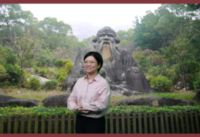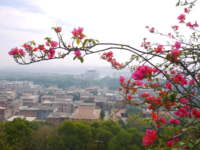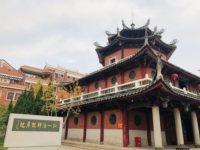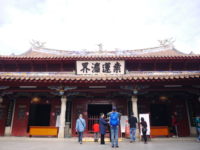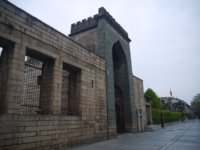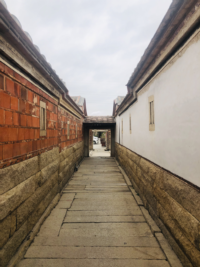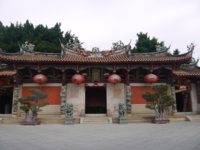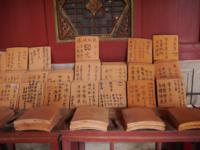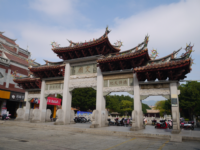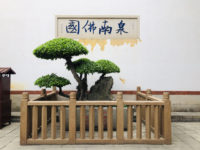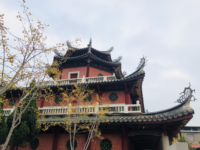|
||
|
||
|
| |||
| 12. 11. 2020 | ISSUE 7 | ||
|
| |||
| Virtual Summer Field Trip | |||||||||||||||||||||||
|
Faced with unprecedented times, Professor GAO Yunwen decided to take her students on a virtual fieldtrip experience through southern China. Read Professor Gao's recount as well as a student's perspective, and a student fieldwork report. Virtual Exploration of Southern China - Professor GAO Yunwen The summer field trip course is a required course for all undergraduate students. In previous years, professors have taken students to various sites such as Guangzhou, Shanghai, Suzhou, Chongqing, etc. This year, I originally planned to take the group to Quanzhou, a historical city with a rich past and vibrant culture. However, due to the outbreak of COVID-19, the field study course was redesigned as an online course to prepare students for future fieldwork through the study of the history and contemporary culture of Southern China. We explored significant issues such as urban development, religious sites and practices, immigration history, preservation of cultural heritage, entertainment culture, gender and marriage in Southern China. Through the case studies of Quanzhou, Xiamen, and Shunde, the course aims to prepare students for future fieldwork in China and other Chinese-speaking communities. One of the favorite topics of the course is Nanyin 南音, literally translated as the Music of the South, an essential component of Buddhist and Daoist culture. Classified as the intangible cultural heritage of humanity by UNESCO in 2009, Nanyin remains popular among the locals regardless of age. As a port city, Quanzhou was also the ancestral homeland of the immigrant population in Taiwan and Southeast Asian countries. The Belt and Road initiative adopted by the Chinese government in 2013 has once again brought government support and public attention to the city. Today, Quanzhou is the home of many domestic manufacturers of clothes and shoes, including Anta, Qipilang, and Tebu. In addition to discussing academic texts related to these topics, I also took the opportunity to show the videos and photos I took in December 2019 in Quanzhou and Xiamen. At the end of the course, students were encouraged to explore their own field research topics in the broader Chinese-speaking regions. They proposed a variety of topics related to cultural heritage preservation and revitalization of historical cities, tourism, local identity, and so on. I find this part of the course most engaging and rewarding. Overall, though we were not able to travel to the southern part of China in person, I find the more in-depth lectures a better tool to prepare students for the field trip in the future and look forward to incorporating this into future versions of this course. Words from a student - Emily Hong Eun KWON Our main theme of the study course was based on Quanzhou in Fujian province, and other neighbouring cities. After exploring (virtually) the history, religion, arts, and society of southern China, I could get a multifaceted view of the region. We could not be physically present in the destination but could only listen to the professor sharing stories. In fact, I was less distracted and could focus more throughout the course. It could have been great if we could have tasted the southern cuisines and listened to nan-yin. However, now that I’m well-prepared with knowledge in advance to the actual trip, I look forward to traveling to southern China in the future more (hopefully). 'Preservation of Taiwanese Identity in Southern Taiwan' Fieldwork - Emily Hong Eun KWON Professor Gao gave us the freedom to choose the topic of our final research, in which we could self-explore any city of, or near China. I personally think that this was the best part of the fieldwork. I did not hesitate a second to write about Taiwan, since it has always been my favourite destination. Although I had a 3-week stay in Taiwan right before the pandemic situation, I was clueless about how to re-appreciate my Taiwan experience, instead of regurgitating old photos on Instagram. Hence, this assignment has been a fun opportunity for me to re-approach my trip memories academically, and to learn more about Taiwan. With the guidance of Professor Gao, there were enough resources that I could refer to. The best take-away from this assignment is that it really has changed my perception towards Taiwanese culture, and now I have developed more academic interest for a deeper understanding. To be honest, I think it will be more than a challenge for humanity to either conquer or choose to coexist with the coronavirus. In either way, a virtual trip will be an inevitable choice and there is a need to enhance this platform for the better experience. Despite being the very first time that CCS has conducted the virtual fieldwork, I was generally satisfied with this experience, and I hope more students would maximize the use of this course to visit the amazing Chinese culture, or even revisit their beautiful memories. |
|
||||||||||||||||||||||
|
|||||||||||||||||||||||
|
|
Past Issue
| |
|
|
|
|
|






